- Mission: To empower decisions that create social, environmental and economic benefits for everyone
GRI envisions a future beyond reports, where information from sustainability reporting empowers decision making throughout organizations
- Focus Areas:
- Create standards and guidance to advance sustainable development
- Harmonize the sustainability landscape
- Lead efficient and effective sustainability reporting
- Drive effective use of sustainability information to improve performance
- Perks:
- Empowering sustainable decisions
- Creating sustainability reporting guidelines
- “Enabling smart policy” to support sustainability reporting and disclosure around the world.
- To enable others to succeed based on its standards
- “Moving beyond reporting” by helping companies extract more value from the sustainability reporting process.

- Two options for preparing a report in accordance with the GRI Standards: Core and Comprehensive
- Core. This option indicates that a report contains the minimum information needed to understand the nature of the organization, its material topics and related impacts, and how these are managed.
- Comprehensive. This builds on the Core option by requiring additional disclosures on the organization’s strategy , ethics and integrity, and governance .
In addition, the organization is required to report more extensively on its impacts by reporting all the topic specific disclosures for each material topic covered by the GRI Standards. These options do not relate to the quality of the information in the report or the magnitude of the organization’s impacts .
- Two basic approaches for using the GRI Standards:
- Using the GRI Standards as a set to prepare a sustainability report in accordance with the Standards.
- The GRI Standards have been developed primarily to be used together to help an organization prepare a sustainability report which is based on the Reporting Principles and focuses on material topics.
- If using this approach, the organization is required to use the three Standards in the Universal series (100) and only the topic specific Standards (series 200, 300 and 400) that relate to the material topics identified.
- Using selected Standards, or parts of their content, to report specific information, without preparing a report in accordance with the Standards.
- This option is referred to as a ‘GRI referenced ’ claim. If using this approach, the organization chooses as many or as few Standards, according to its specific reporting needs
- Using the GRI Standards as a set to prepare a sustainability report in accordance with the Standards.
- Company has to report its use through the GRI Standards Report Registration System.
- The use of External assurance for sustainability reports is advised.
- An organization is required to report its approach to external assurance with Disclosure 102 56. under GRI 102: General Disclosures .
- The GRI Standards are not subject to certification. There is no cost associated with using the GRI Standards for sustainability reporting, or with notifying GRI of the use of the Standards.
- GRI Standards:
- Universal Standards
- GRI 101 Foundation:
- GRI 101 sets out the Foundation with Reporting Principles for defining report content and quality.
- It includes requirements for preparing a sustainability report in accordance with the GRI Standards, and describes how the GRI Standards can be used and referenced
- GRI 102 General Information:
- GRI 102 General Disclosures is used to report contextual information about an organization and its sustainability reporting practices.
- This includes information about an organization’s profile, strategy, ethics and integrity, governance, stakeholder engagement practices, and reporting process.
- GRI 103 Management Approach:
- GRI 103 Management Approach is used to report information about how an organization manages a material topic.
- It is designed to be used for each material topic in a sustainability report, including those covered by the topic specific GRI Standards.
- GRI 101 Foundation:
- Specific Standards
- GRI 200 Economic:
- 201 : Economic Performance
- Disclosure 201-1 Direct economic value generated and distributed
- Disclosure 201-2 Financial implications and other risks and opportunities due to climate change
- 202 : Market Presence
- 203 : Indirect Economic Impacts
- 204 : Procurement Practices
- 205 : Anti corruption
- 206 : Anti competitive Behaviour
- 201 : Economic Performance
- GRI 300 Environmental
- 301: Materials
- Disclosure 301 1 Materials used by weight or volume
- Disclosure 301 2 Recycled input materials used
- 302 : Energy
- 303 : Water
- 304 : Biodiversity
- 305 : Emissions
- 306 : Effluents and Waste
- 307 : Environmental Compliance
- 308 : Supplier Environmental Assessment
- 301: Materials
- GRI 400 Social
- 401: Employment
- 402 : Labor /Management Relations
- 403 : Occupational Health and Safety
- 404 : Training and Education
- 405 : Diversity and Equal Opportunity
- 406 : Non discrimination
- 407 : Freedom of Association and Collective Bargaining
- 408 : Child Labor
- 409: Forced or Compulsory Labor
- 410: Security Practices
- 411 : Rights of Indigenous Peoples
- 412 : Human Rights Assessment
- 413 : Local Communities
- Disclosure 413 1 Operations with local community engagement, impact assessments, and development programs
- Disclosure 413 2 Operations with significant actual and potential negative impacts on local communities
- 414 : Supplier Social Assessment
- 415: Public Policy
- 416: Customer Health Safety
- 417: Marketing and Labelling
- 418: Customer Privacy
- 419: Socioeconomic Compliance
- GRI 200 Economic:
- Universal Standards
- Reporting Content:
- Stakeholder inclusiveness Who are the stakeholders and how their concerns have been addressed
- Sustainability Context
- Materiality: This principle determines which issues are important to report for the organisation.
Two dimensional:
- Significance of impacts
- Influence on stakeholder assessment and decision
Any issue ranking highly only on one dimension can also be Material.
- Completeness Coverage of all Material Topics and their Boundaries


